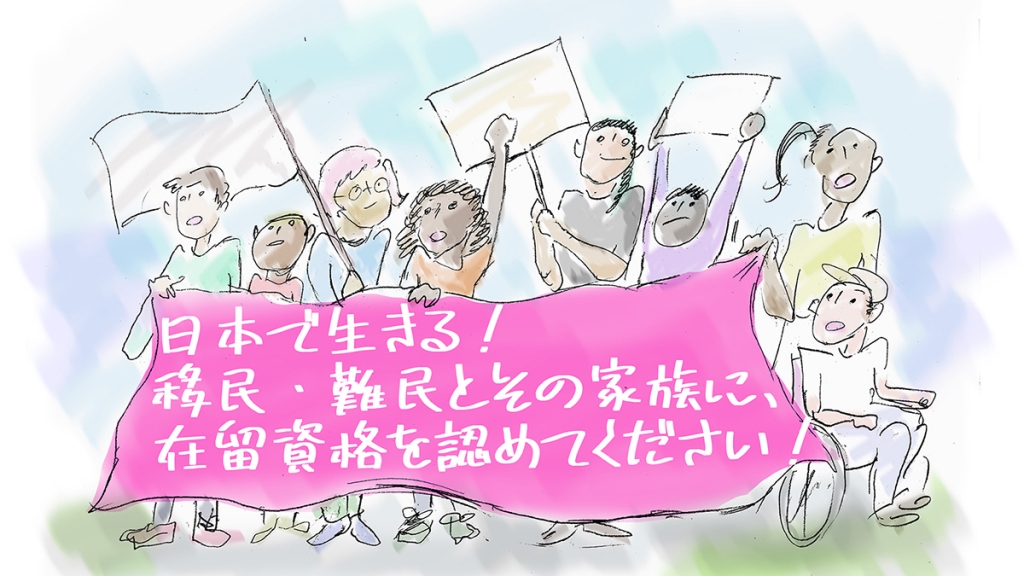お知らせNews
【Urgent Signature】Grant Immigrants, Asylum Seekers and their Families Residency Status to Live in Japan!
Signature deadline is April 18, 2021.
Please sign up from HERE or download the signature paper from HERE.
Prime Minister Yoshihide Suga
Minister of Justice Yoko Kamikawa
Grant Immigrants, Asylum Seekers and their Families Residency Status to Live in Japan!

Today in Japan there are many immigrants and asylum seekers who wish to continue living in the country despite being denied legal status of residence. About 3,000 of them are "residence seekers" who have been ordered by the Japanese government to leave the country, but still wish to live in Japan having already established their lives here, or due to various difficulties faced in returning to their countries of origin.
We demand the Japanese government grant them status of residence (special permission to stay) so that they can continue to live in Japan.
The "residence seekers", who have been ordered to leave the country, are the workers and their families who have been supporting Japanese society in industries of labor shortage. They also include asylum seekers and their families who have been repeatedly denied refugee status in this country where the refugee recognition rate is less than 1%.
These “residence seekers” are prohibited from working in Japan due to their lack of residence status, and are excluded from social security programs such as welfare, being forced to live under unimaginably harsh conditions. Yet they are unable to return to their countries of origin due to their own particular reasons which prevent them, or their particular reasons to stay and live in Japan.
For example, Japan is literally home for children born to parents without status of residence, or those who came to Japan as young children and grew up in the country. They do not have a place to "return" to. As a country that has ratified the Convention on the Rights of the Child, Japan has an obligation to protect the "best interests of the children.” The government's policy of encouraging deportation is contrary to this obligation and further violates the right of children to live with their families (right to family unity) as guaranteed by the International Covenant on Civil and Political Rights, which Japan has also ratified.
Many of the asylum seekers who have been given deportation orders are those who have applied for refugee status multiple times. Refugee applicants in Japan are placed in such a situation because of the possibility of persecution and threat to their lives if they return to their home countries. It is for this reason that the Convention Relating to the Status of Refugees prohibits the repatriation of refugees and asylum seekers (the principle of non-refoulement). It is not permissible to repatriate a person who should be recognized as a refugee although the person is currently not recognized as such.
Against this backdrop, the Revised Immigration Control and Refugee Recognition Bill was approved by the Cabinet on February 19, 2021. This bill includes criminal penalties for those who cannot comply with deportation orders for the reasons mentioned above (criminal penalties for refusing deportation), as well as an exception to the suspension of repatriation of asylum seekers who have applied for refugee status more than once.
We oppose this revision of the Immigration Control and Refugee Recognition Act and strongly urge that immigrants, asylum seekers, and their families who have difficulties returning to their countries of origin be granted special permission to stay (a measure that allows them to stay and grants them status of residence at the discretion of the Minister of Justice).
If Japan aims to realize a society where "no one is left behind," it should grant their "residence seekers" the status of residence to live in Japan.
Solidarity Network with Migrants in Japan




